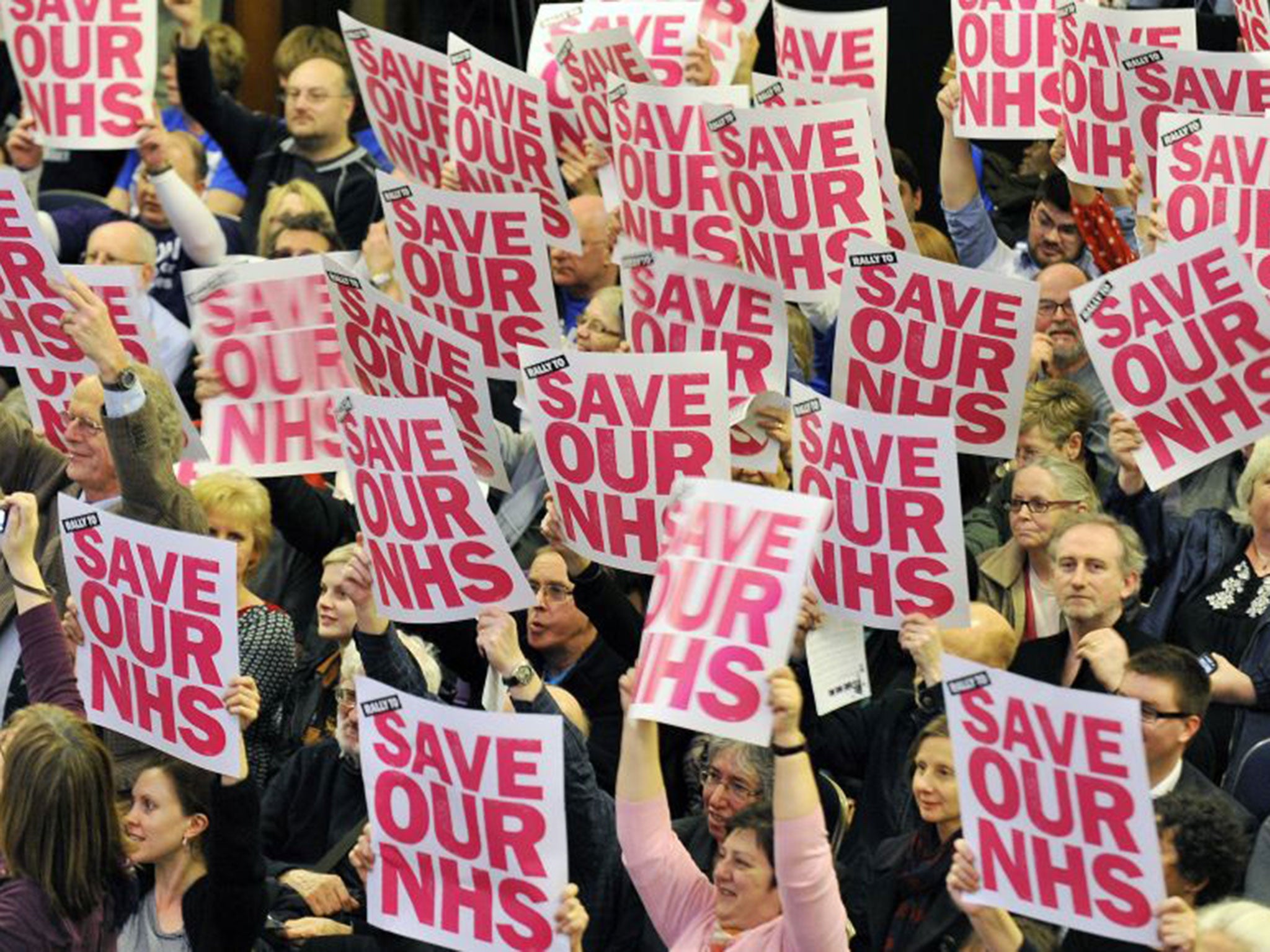We're already pouring £9bn of NHS money into big business - and TTIP will make it worse
A trade deal that cedes power from the people to the market

Your support helps us to tell the story
From reproductive rights to climate change to Big Tech, The Independent is on the ground when the story is developing. Whether it's investigating the financials of Elon Musk's pro-Trump PAC or producing our latest documentary, 'The A Word', which shines a light on the American women fighting for reproductive rights, we know how important it is to parse out the facts from the messaging.
At such a critical moment in US history, we need reporters on the ground. Your donation allows us to keep sending journalists to speak to both sides of the story.
The Independent is trusted by Americans across the entire political spectrum. And unlike many other quality news outlets, we choose not to lock Americans out of our reporting and analysis with paywalls. We believe quality journalism should be available to everyone, paid for by those who can afford it.
Your support makes all the difference.If there’s one thing that almost all proponents of TTIP (the US-EU trade deal) seem to agree on, it’s that it will give British business great openings in the world of US local government.
US local government contracts – everything from school equipment to local road construction – are worth billions of dollars. They are also famed for being “protected” by rules that encourage the buying of US products. So, we’re told, getting our hands on this market would more than make up for having to swallow US standards in food production.
The problem is that local procurement (governments buying goods and services) is a key way that the public can support local businesses, farmers and co-ops, ensure kids in school eat decent meals, in short promote those bits of the economy which we like.
A new paper for the Institute of Agriculture and Trade Policy by Karen Hansen-Kuhn argues that “Buy American programs have helped ensure that taxpayer-funded programs create local jobs and serve social goals.”
So it could be in the UK. Imagine you want to promote local farmers producing organic food in your area and give patients in hospitals healthy meals. Or, as Hansen-Kuhn argues, if you want to “give preference to disadvantaged groups such as ethnic minorities” or support a living wage or environmental protection. Public control of procurement can make it possible.
Look at alternative economic models like food sovereignty - giving communities power over their food production and supply - or energy democracy - producing increasingly renewable energy in such a way that also makes it proportionally cheaper for the poorest who use least. Public procurement allows our taxes to be spent extending democratic control over the basics of life – resources too important to be left to the market.
This is basic stuff, but unfortunately we have had decades of governments hell-bent on making these decisions based simply on price – “who can do it cheapest”. That’s how, it was reported last week, £9 billion of public funds are on course to be handed over to some of the biggest companies in the world, to run a health service which was once the envy of the world precisely because it was public. That’s how the arms firm Lockheed Martin can seriously consider bidding for public money to run part of the NHS. Leave it to the market, and you’ll get a military hardware company running health services.
TTIP aims to embed this “market knows best” logic in all public decisions. It doesn’t benefit “Britain”, it benefits the same handful of mega-businesses who increasingly run our entire “public” sector.
We can already see, then, what this “free market” looks like: the stranglehold of companies like G4S, Capita, Serco and Atos over public contracts meaning that however inefficient, unethical or even illegal their behaviour, they continue to be showered with taxpayer money to take over more and more of our state.
So the threat of TTIP isn’t about whether the US or EU gain more or less vis-à-vis one another. It’s about what the “market” gains at the expense of the “public”. It’s about removing one of the few important tools we have here and now for changing society.
This is also why local councils up and down the country should be worried about TTIP. Already we’ve seen a handful of councils pass resolutions against TTIP. In coming months, we’ll encourage more and more councils to declare themselves “TTIP free” zones, just as councils across Germany and France are doing. In Germany local government has become a major thorn in the side of the national government, declaring that they will only accept TTIP if it guarantees their full independence in providing public services and procuring goods and services. This, of course, the national government won’t be able to accept, because it runs counter to the whole point of TTIP.
By opening up this new front in the UK, we can also take the fight against TTIP to a new level – and one which resonates with the public in a very direct way.
Join our commenting forum
Join thought-provoking conversations, follow other Independent readers and see their replies
Comments